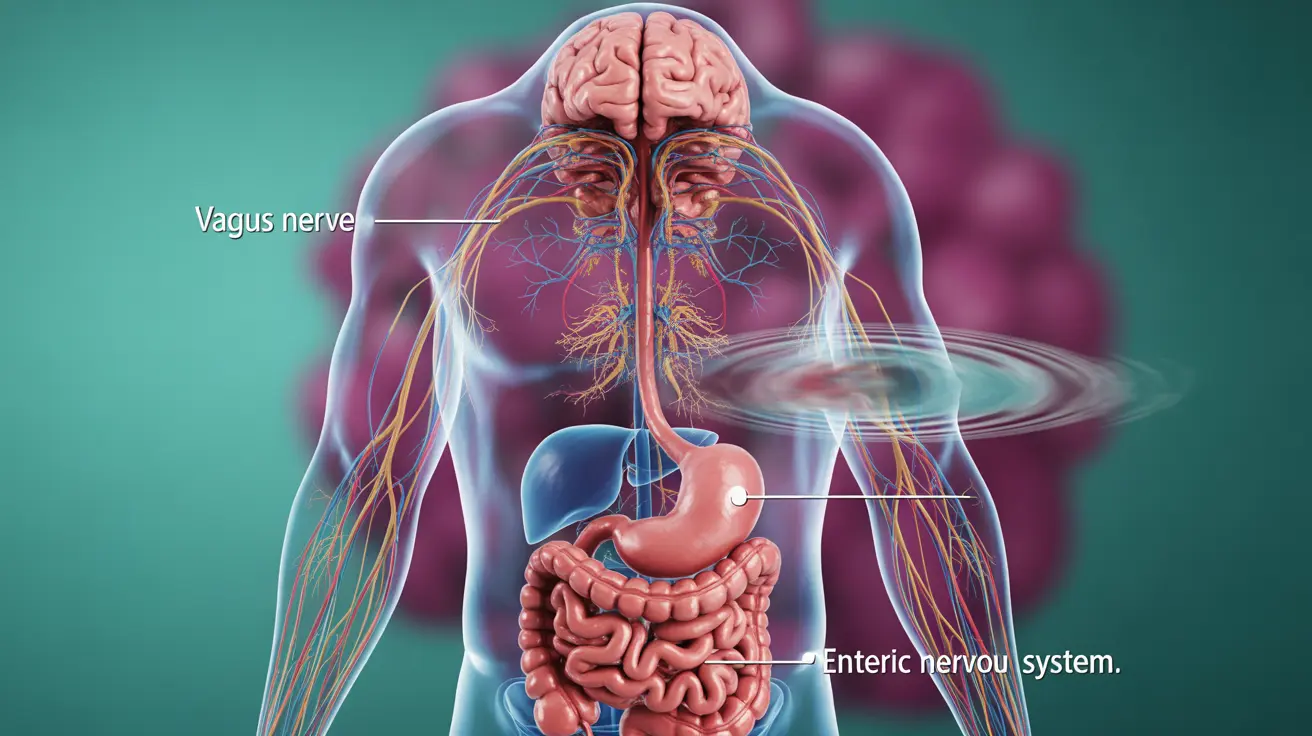When you experience a concussion, its effects can extend far beyond the immediate head injury. One surprising but significant symptom that some people encounter is diarrhea following a concussion. This connection between brain injury and digestive issues stems from the complex relationship between your brain and gut function.
Understanding how a concussion can affect your digestive system is crucial for proper diagnosis and treatment. Let's explore the connection between concussions and digestive symptoms, along with effective management strategies.
The Brain-Gut Connection After Concussion
Following a concussion, your brain's ability to regulate various bodily functions may be temporarily disrupted. This disruption affects the autonomic nervous system (ANS), which controls involuntary body processes, including digestion. When the ANS is impacted, it can lead to various digestive symptoms, including diarrhea.
The vagus nerve, a key component of the ANS, plays a crucial role in this connection. When affected by a concussion, it may alter gut motility and secretion patterns, potentially resulting in digestive disturbances.
Common Digestive Symptoms Post-Concussion
Diarrhea isn't the only digestive symptom that may occur after a concussion. Other common symptoms include:
- Nausea and vomiting
- Changes in appetite
- Irregular bowel movements
- Stomach pain or discomfort
- Bloating
Recognizing Post-Concussion Autonomic Dysfunction
Autonomic dysfunction following a concussion can manifest in various ways beyond digestive issues. Key indicators include:
- Changes in heart rate
- Blood pressure fluctuations
- Temperature regulation problems
- Excessive sweating
- Dizziness upon standing
Diagnostic Approaches
Healthcare providers typically use several methods to evaluate post-concussion autonomic dysfunction:
- Detailed symptom history
- Physical examination
- Autonomic function testing
- Heart rate variability assessment
- Blood pressure monitoring
Treatment and Management Strategies
Immediate Care
If you're experiencing diarrhea after a concussion, consider these initial steps:
- Stay hydrated with clear fluids
- Follow a bland diet temporarily
- Rest and avoid strenuous activity
- Monitor symptoms carefully
- Seek medical attention if symptoms worsen
Long-term Management
Long-term management often requires a comprehensive approach:
- Regular follow-up with healthcare providers
- Gradual return to normal activities
- Stress reduction techniques
- Dietary modifications as needed
- Medication when prescribed by your doctor
Prevention and Recovery Tips
While you can't always prevent post-concussion symptoms, you can take steps to support recovery:
- Follow your doctor's rest recommendations
- Maintain a consistent sleep schedule
- Eat a balanced, nutrient-rich diet
- Avoid known digestive triggers
- Practice stress management techniques
Frequently Asked Questions
Can a concussion cause diarrhea or other digestive problems?
Yes, a concussion can cause diarrhea and other digestive problems due to its impact on the autonomic nervous system, which controls digestive function. These symptoms may develop as part of post-concussion syndrome.
How does autonomic nervous system dysfunction after a concussion affect bowel movements?
Autonomic nervous system dysfunction following a concussion can alter gut motility, secretion patterns, and digestive processes, leading to irregular bowel movements, including diarrhea or constipation.
What symptoms should I watch for if I have diarrhea after a concussion?
Monitor for severe or persistent diarrhea, dehydration signs, blood in stool, severe abdominal pain, fever, or worsening neurological symptoms. These require immediate medical attention.
How is autonomic dysfunction diagnosed and treated after a concussion?
Diagnosis typically involves comprehensive evaluation of symptoms, physical examination, and specific tests for autonomic function. Treatment may include medications, lifestyle modifications, and rehabilitation programs tailored to individual symptoms.
Are there ways to manage or prevent digestive issues following a concussion?
Yes, managing digestive issues post-concussion involves following a proper rest schedule, maintaining good hydration, eating a balanced diet, avoiding trigger foods, and working closely with healthcare providers to develop an appropriate treatment plan.




